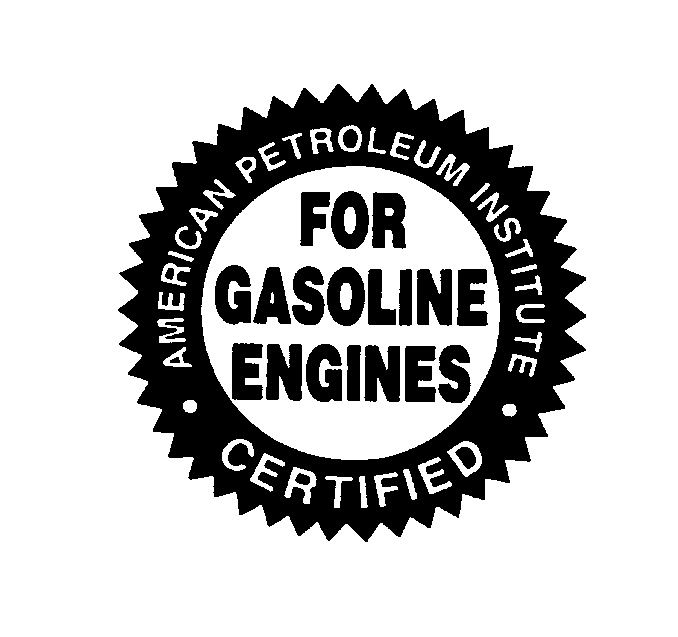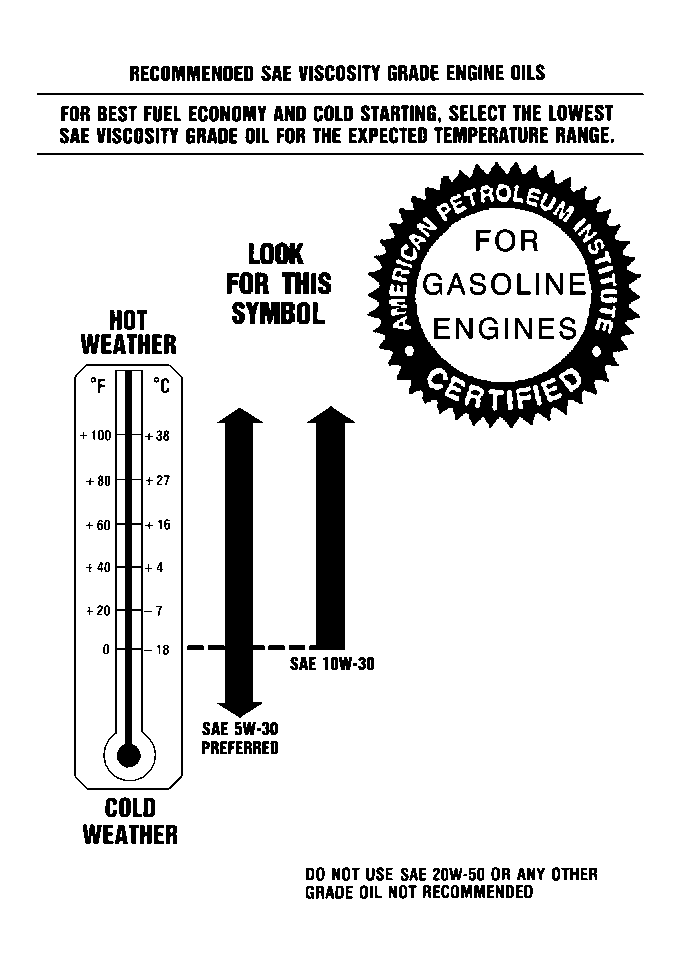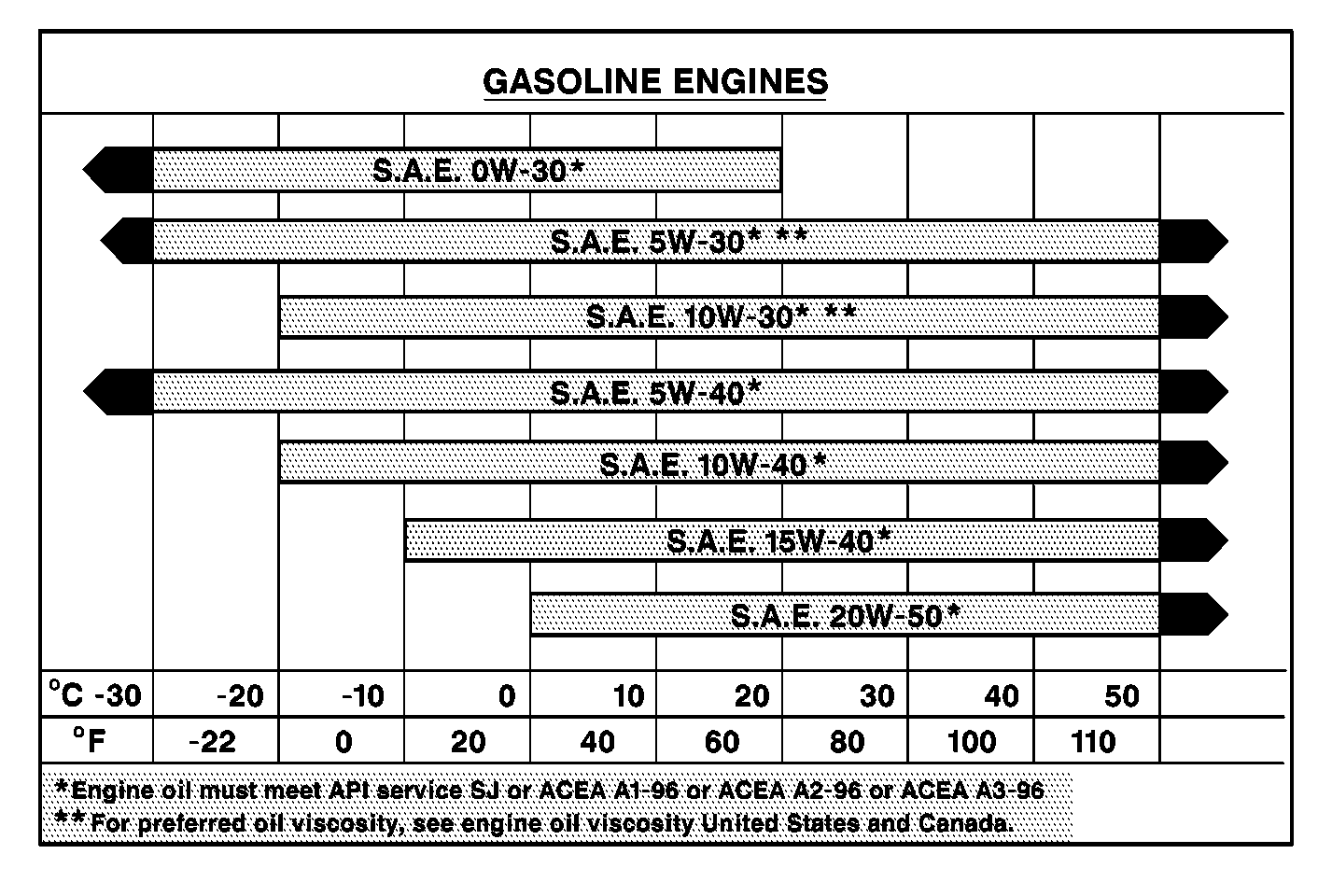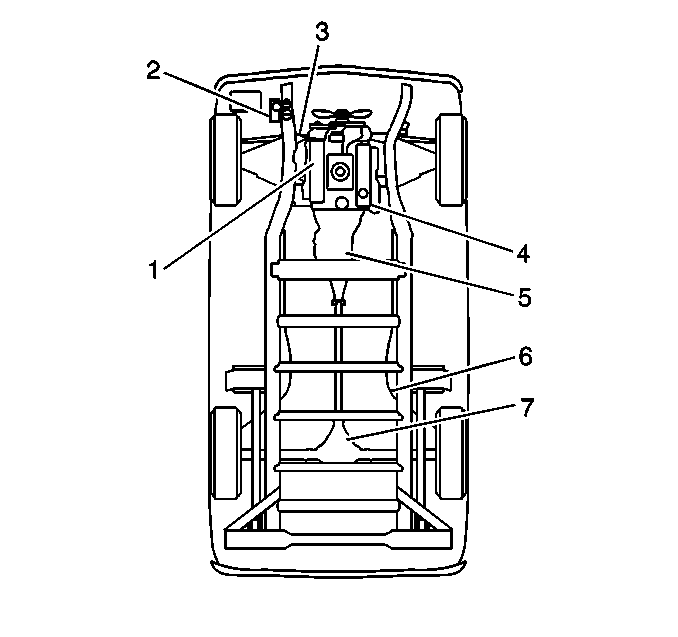For time and/or mileage intervals of scheduled maintenance items, refer to Maintenance Schedule .
The following text and illustrations describe the details of the required scheduled maintenance services.
For information on the proper fluids and lubricants to use, refer to Fluid and Lubricant Recommendations .
Engine Oil and Filter Change
For the engine oil and filter changing procedure, refer to Engine Oil and Oil Filter Replacement in Engine Mechanical -4.3L.
For information on the correct engine oil quality and viscosity, refer to the following:
Engine Oil Quality, United States and Canada
Notice: Use only engine oil with the American Petroleum Institute Certified for Gasoline Engines starburst symbol. Failure to use the recommended oil can result in engine damage not covered by the warranty.

The STARBURST symbol indicates that the oil has been certified by the American Petroleum Institute (API).Do not use any oil which does not carry the STARBURST symbol.
Engine Oil Viscosity, United States and Canada

Notice: Using oils of any viscosity other than those recommended could result in engine damage. When choosing an oil, consider the range of temperatures the vehicle will be operated in before the next oil change. Then, select the recommended oil viscosity.
The recommended oil viscosity for the M/L Van is SAE 5W-30.
Engine oil viscosity (thickness) has an effect on the fuel economy and the cold-weather operation (starting and oil flow). Lower viscosity engine oils can provide better fuel economy and cold-weather performance. However, higher temperature weather condition require higher viscosity engine oils for satisfactory lubrication. When the temperature is consistently above -18°C (0°F), SAE 10W-30 can be used. SAE 20W-50 or oils of other viscosity rating or quality designations are NOT recommended for use in any GMC vehicle at any time.
Important: If your vehicle is operated in an area where the temperature falls below -29°C (-20°F), consider using a SAE 5W-30 synthetic oil or a SAE 0W-30. Both will provide easier cold starting and better protection for the engine at extremely low temperatures.
Engine Oil Quality and Viscosity, Other Than The United States and Canada

Notice: Using oils of any viscosity other than those recommended could result in engine damage. When choosing an oil, consider the range of temperatures the vehicle will be operated in before the next oil change. Then, select the recommended oil viscosity.
Important: When adding to, or changing the engine oil, use ONLY oils of the proper quality.
In countries other than the United States and Canada, it may be difficult to find engine oils that display the API STARBURST symbol certifying the oil is for use in gasoline engines. If you are unable to find engine oils displaying the API STARBURST symbol, use engine oils that meet API Service SJ and/or ACEA A1-96, ACEA A2-96, or ACEA A3-96 requirements as shown in the chart above.
Chassis Lubrication
Notice: Do not lubricate the parking brake cables. Lubrication destroys the plastic coating on the cable.
Refer to the illustration for the location of the lubrication points for the chassis. Lubricate the transmission shift linkage, the park brake guides, the underbody contact points and linkage.
Lubricating Joints that have Grease Fittings

